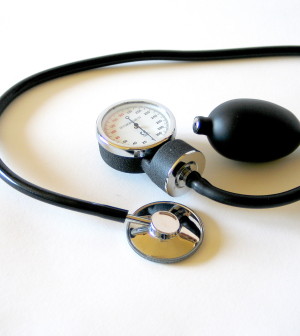- FDA Approves New Antibiotic Against UTIs
- New School Lunch Rules Target Added Sugars, Salt
- Dairy Cows Moved Across State Lines Must Now Be Tested for Bird Flu
- TikTok Riddled With Misleading Info on Health: Study
- Emulsifier Chemicals Are Everywhere in Foods. Could They Raise Diabetes Risk?
- Opioids During Pregnancy May Not Raise Psychiatric Risks for Offspring
- Could Heartburn Meds Raise Your Migraine Risk?
- Drug, Alcohol Abuse Goes Untreated in Many Ex-Prisoners
- Watchdog Group Says U.S. Food Recalls Rose Again Last Year
- Genes Could Mix With Pesticide Exposure to Raise Parkinson’s Risk
Drivers With ADHD May Be at Higher Risk for Serious Crashes


Drivers with attention-deficit/hyperactivity disorder (ADHD) are nearly 50 percent more likely to be in a serious car crash, a new study suggests.
Further, men with ADHD can dramatically decrease their risk of traffic accidents if they take medication for their condition, the Swedish researchers said.
“This study confirms the importance of treatment and medication for adults with ADHD as well as teens,” said Ruth Hughes, CEO of Children and Adults With Attention-Deficit/Hyperactivity Disorder, a patient advocacy group.
“The core symptoms of ADHD include problems with sustained attention and impulsivity, which can have an adverse effect on driving safely,” said Hughes, who was not involved in the new study. “All drivers with ADHD need to responsibly manage their treatment to reduce driving risks.”
The new findings come from a review of more than 17,000 people in Sweden with ADHD, aged 18 to 46. Researcher Henrik Larsson and colleagues at the Karolinska Institute used databases to track whether the patients had been in a car accident between 2006 and 2009, and if they had a prescription for ADHD medication at the time.
Overall, having ADHD increased a man’s risk of a traffic crash by 47 percent and a woman’s risk by 45 percent, the researchers found.
They then investigated the role of medication in preventing crashes by determining whether people involved in a wreck had filled a prescription for ADHD medicine within the previous six months.
Dr. Lenard Adler, a professor of psychiatry at NYU Langone Medical Center in New York City, said despite a broad definition of taking medication, “men [who were] treated substantially lowered their risk for accidents.”
Access to ADHD medication reduced men’s risk of a car wreck by 58 percent compared to men who did not take medication, according to the study. Women with ADHD, however, did not receive any significant benefit from medication in terms of car crashes.
The study, published online Jan. 29 in the journal JAMA Psychiatry, did not receive any funding from drug companies.
Breaking down the numbers further, the researchers estimated that between 41 percent and 49 percent of the car accidents involving men with ADHD could have been avoided if they had been taking their medication as prescribed.
About three out of five children with ADHD carry the disorder with them into adulthood, according to the Anxiety and Depression Association of America. That amounts to about 8 million adults living with ADHD.
Previous research with ADHD patients in virtual-reality driving simulators found that they are more likely to speed, drive erratically, tap the breaks and accelerate into potential accidents, said Adler, who did not take part in the Swedish research.
“These sorts of things are more likely in individuals with ADHD than in people without ADHD,” he said. “This is an important study that follows up on … some of the shorter-term studies that have shown that people with untreated ADHD have more accidents.”
Although the study found an association between having ADHD and greater risk of serious car crashes, it did not establish a cause-and-effect relationship.
Adler said, however, that you don’t necessarily have to fear getting into a car with a driver who has ADHD.
“With ADHD, there tend to be two groups: a group that is distracted and impulsive, and a group that drives fine. Not everyone with ADHD has this problem, but a substantial percentage does,” he said. “This study highlights another reason why getting an appropriate diagnosis for adult ADHD is important, and why it is important to get the ADHD treated.”
People with ADHD also should to take extra precautions that will help them keep their mind on the road, Hughes said.
“In addition to medication, this can mean limiting distractions like texting or cell phones, fewer passengers, breaking up monotonous drives with frequent breaks and being more vigilant about driving defensively,” she said.
More information
Visit the Anxiety and Depression Association of America to learn more about adult ADHD.
Source: HealthDay
Copyright © 2024 HealthDay. All rights reserved.










